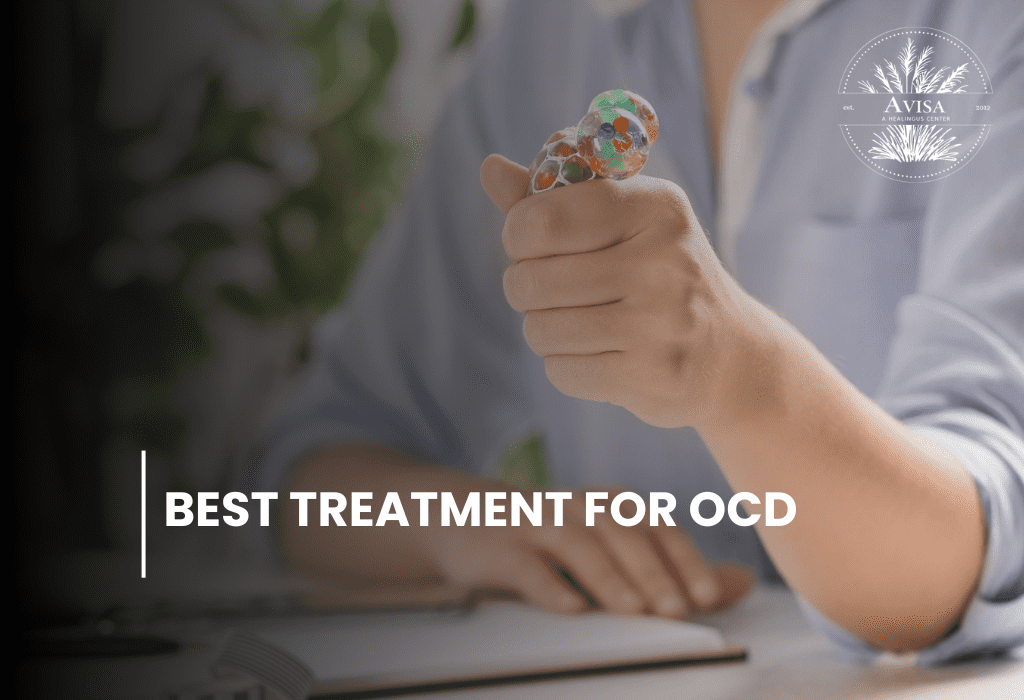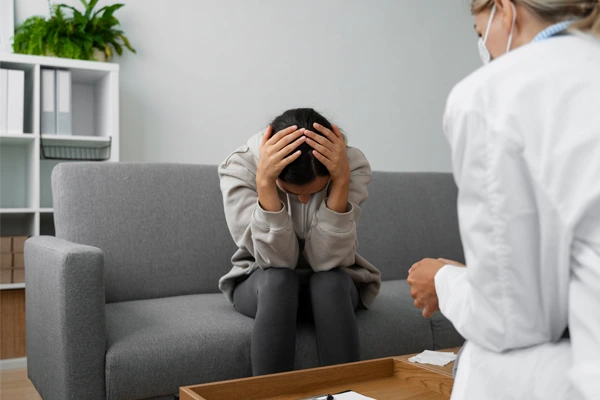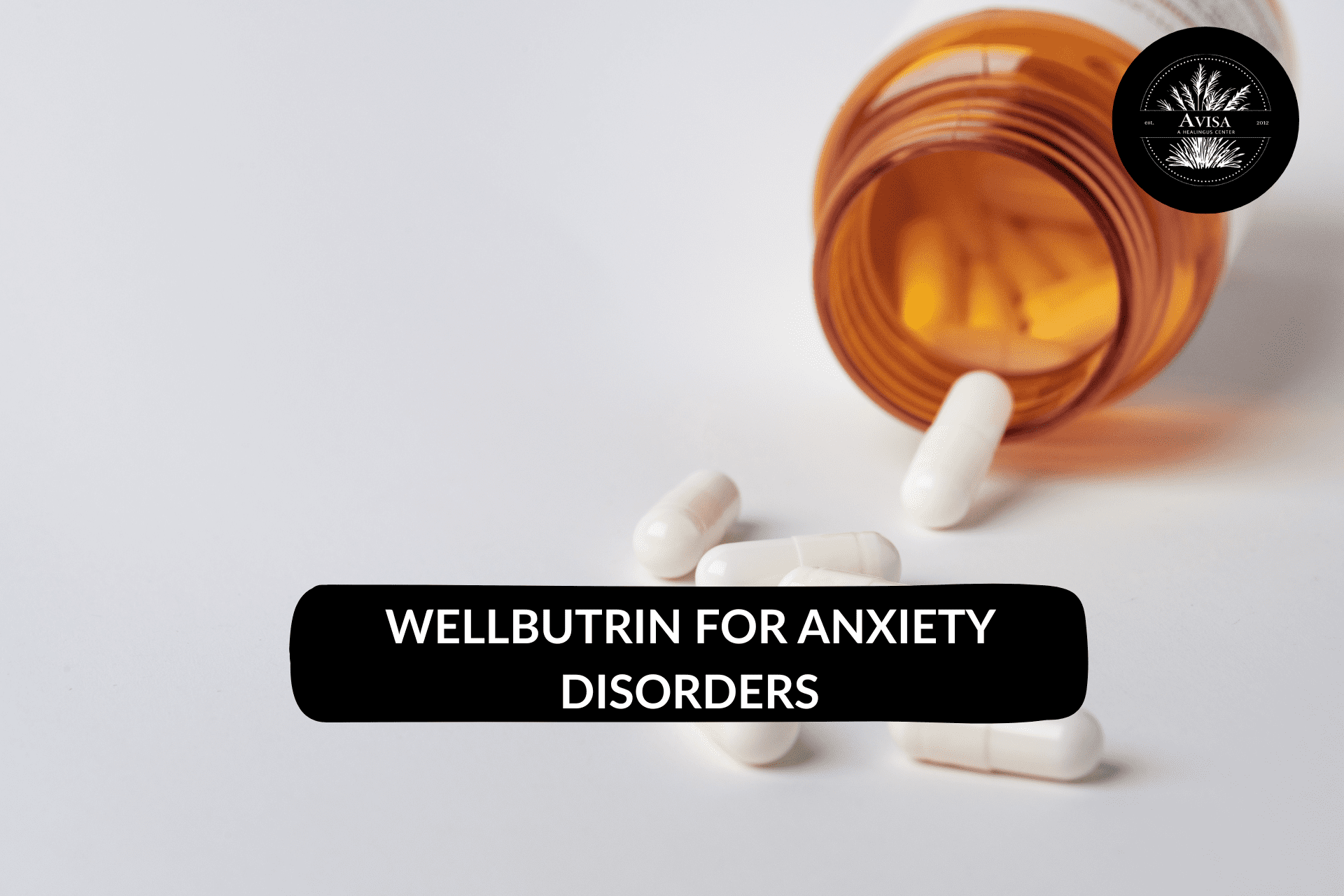Identifying the best treatment for OCD can be a confusing process, particularly when persistent doubts dominate your daily life. OCD is not just about being tidy or double-checking things. It involves intrusive thoughts that can make daily life feel overwhelming. In fact, over 2.2 million people in the U.S. are battling with OCD, with many first showing symptoms in childhood and most around age 19.
Sue Miller, an American novelist, shares her powerful journey of dealing with constant habits that were hard to break on our podcast. She talks about feeling lost, facing family pressures, and managing mental health struggles. This story connects to those with OCD, as both involve managing challenging emotions and dealing with societal stigma. Just like Sue found healing through honesty and support, holistic treatments for OCD can also help manage emotions and improve well-being by focusing on both the mind and body.
Managing these thoughts and finding the best treatment for OCD can make a significant difference in regaining control and balance. In this blog, we will guide you on how to choose the right treatment, recognize the symptoms, and understand what options work best for you.
Explore Holistic Approaches to Managing OCD
Importance of Finding Effective Treatment for OCD
OCD can make daily life challenging, but effective treatment can bring significant relief. Studies show that with the right treatment, many individuals in the U.S. experience a noticeable reduction in symptoms and improved quality of life. Here’s why finding the best treatment for OCD is so important:
Less Anxiety and Stress
Good treatment helps people face their obsessive thoughts and manage anxiety, making life feel less overwhelming.
Better Daily Life
By controlling compulsive behaviors, treatment helps people focus on work, school, or social activities without spending too much time on rituals or avoiding things.
Stronger Relationships
When OCD symptoms are under control, it’s easier to build and maintain healthy connections with family and friends.
Improved Mental Health
Treatment gives people the tools to manage their OCD and feel more in control, leading to a happier and healthier mind.
Taking the step toward treatment can be life-changing. With the right help, you can regain control, strengthen your relationships, and enjoy a better quality of life.
Recognizing the Symptoms in Yourself or Loved Ones
OCD can involve obsessions, compulsions, or both, and these can make daily life overwhelming. Recognizing the signs early can help in seeking the best treatment. The National Institute of Mental Health highlights the following signs and symptoms:
- Fear of germs or contamination
- Fear of forgetting, losing, or misplacing something
- Unwanted aggressive or harmful thoughts
- Excessive cleaning, handwashing, or checking behaviors
- Need for symmetry or precise arrangement of items
- Compulsive counting or silent praying to ease anxiety
- Avoidance of situations that trigger obsessive thoughts
If you or someone you know may have OCD, consulting a healthcare provider is an important step toward managing and improving these symptoms.
Why Treatment is Essential for OCD
Treatment is important to help manage symptoms, reduce anxiety, and improve overall well-being. Without treatment, OCD can worsen over time and affect relationships, work, and personal life. Here are the reasons why the best treatment for OCD is essential:
● The Impact of Untreated OCD on Mental Health
Leaving OCD untreated can make anxiety and stress worse, leading to more mental health issues like depression or other anxiety disorders.
● Quality of Life and Relationship Strain Due to OCD
OCD can make everyday activities harder, affecting work, school, and social life. It can also put a strain on relationships, causing misunderstandings with family and friends.
● Long-term Risks of Ignoring OCD Symptoms
If OCD symptoms are ignored, they can become more severe over time, making it harder to manage and causing lasting damage to mental health and daily life.
Treatment Options for OCD
There are several treatment options available for OCD, and finding the right one can help manage symptoms effectively. Here are those:
1. Cognitive Behavioral Therapy (CBT)
CBT helps people with OCD identify and change harmful thought patterns. It involves accepting intrusive thoughts instead of trying to control them, which reduces anxiety. Studies in the U.S. show that CBT has a high success rate of approximately 70%, with many individuals experiencing significant improvement in their symptoms. Online CBT can also be as effective as in-person sessions for some people.
2. Exposure and Response Prevention (ERP)
ERP is a type of CBT where you gradually face your fears and resist performing compulsive rituals. Over time, this helps reduce anxiety and the need for rituals. Research shows ERP is highly effective in managing OCD symptoms.
3. Accelerated Resolution Therapy (ART)
ART is a newer form of therapy that helps people quickly process traumatic or distressing thoughts. It uses eye movement techniques to help individuals reframe memories and reduce the emotional charge of intrusive thoughts, helping people with OCD manage anxiety more effectively.
- Medication (SSRI)
Doctors often prescribe SSRIs (selective serotonin reuptake inhibitors) like Paxil, Zoloft, or Prozac to help treat OCD symptoms. It can take time for these medications to be effective, and it’s important to stay consistent with the treatment plan. In some cases, tricyclic antidepressants like clomipramine may also be used.
- Brain Stimulation Therapies
Brain stimulation therapy involves using electrical or magnetic pulses to change brain activity, targeting areas linked to OCD symptoms. These are the two types:
Deep Brain Stimulation (DBS)
A more invasive treatment involving electrodes in the brain is used when other treatments are not effective.
Transcranial Magnetic Stimulation (TMS)
A non-invasive procedure that uses magnetic pulses to stimulate areas of the brain linked to OCD, often used alongside medications.
Each treatment option can be tailored to meet individual needs. Consulting a healthcare provider is essential to determine the most effective approach.
Tired of fighting addiction and mental health struggles?
Ignoring both deepens the struggle. Our holistic approach—detox, therapy, and medication-assisted treatment—can help you heal. Take the first step today.
FAQs:
Q: What is the most effective treatment for OCD?
A: The best treatment for OCD usually involves a mix of therapy and medication. Cognitive Behavioral Therapy (CBT), especially a technique called Exposure and Response Prevention (ERP), along with medicines like Selective Serotonin Reuptake Inhibitors (SSRIs), has been shown to work well for managing OCD symptoms.
Q: Can OCD be cured completely?
A: Right now, there’s no cure for OCD, but with the right treatment, many people can reduce their symptoms and lead a better life.
Q: What are the side effects of SSRIs for treating OCD?
A: SSRIs can cause side effects like problems with sleep, stomach issues, or sexual difficulties. These side effects should be discussed with a doctor to find the best way to manage them.
Q: Are there any treatments for people who don’t respond to the first treatments for OCD?
A: Yes, for those who don’t respond to standard treatments, options like Deep Brain Stimulation (DBS) and Transcranial Magnetic Stimulation (TMS) can help.
Q: How can family involvement help in the treatment of OCD?
A: When family members are involved in therapy, it can help everyone understand OCD better, reduce behaviors that make it worse, and create a supportive environment. This can make the treatment more successful.
How Avisa Recovery Can Help You!
At Avisa Recovery, located in New Jersey, we understand how challenging OCD can be. Our team is committed to providing personalized care tailored to your unique needs. With a proven track record of success, Avisa Recovery has positive reviews from patients who have experienced significant improvements.
Behavioral therapies, particularly Cognitive Behavioral Therapy (CBT) and antidepressant medications, are well-established treatment methods for OCD. We integrate these proven treatment approaches with personalized care to ensure that each patient receives the best possible support.
We are here for you every step of the way, offering support and guidance as you work toward lasting relief from OCD.











